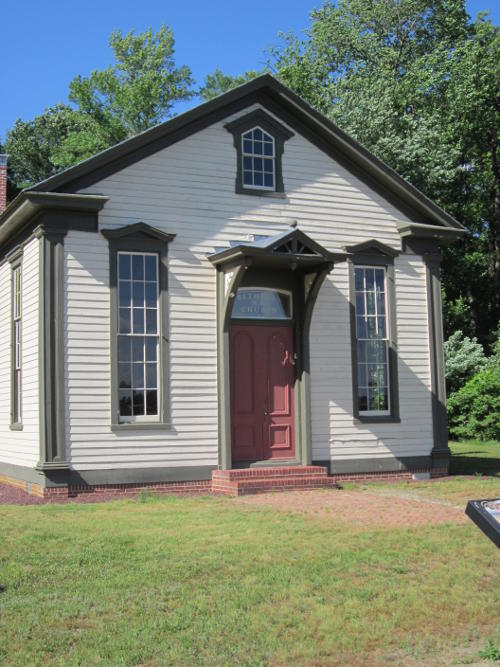A Pepper Grinder Post
Church Growth
I've been thinking lately about some of the things some churches do to try to grow, and especially to pull in young people. Now this brings up all kinds of questions I'm not even going to try to address, such as:
- Is it always a good thing for a church to grow in numbers? Is it always bad if a church stays the same size or shrinks?
- Is attracting young people to a church necessarily the gold standard for a church? Might a particular congregation be called to minister to older people?
I will just accept without argument that a congregation wants to grow and would love to have more young people filling its pews.
If we start there, what's the best way to attain these goals? Here's a list of what I think some people would say, based on things I've heard in various places over the years:
- Make sure you have enough parking.
- Make sure you have enough comfortable seating. People don't want to be crammed in next to people they don't know.
- Leaders of the church should be young, or at least be people who act, dress, and speak like young, upbeat, energetic people.
- Services should be informal and exciting.
- Sermons should be short, practical, and encouraging. Avoid topics that might be depressing or too challenging.
- Ditch the hymns in favor of lively, contemporary worship songs led by a "kickin'" worship band.
 To be fair, I think many churches trying to draw larger, younger crowds would not have exactly this approach. I'm sure there are churches, for example, who are seeker-friendly in some of the ways mentioned above, but who might have challenging, Biblical sermons. I also think there is nothing inherently wrong with some of these bullet points. Who wouldn't want to have adequate parking?
To be fair, I think many churches trying to draw larger, younger crowds would not have exactly this approach. I'm sure there are churches, for example, who are seeker-friendly in some of the ways mentioned above, but who might have challenging, Biblical sermons. I also think there is nothing inherently wrong with some of these bullet points. Who wouldn't want to have adequate parking?
My problem is with the general attitude that if we just get all the factors right, our church will become a thriving congregation. In some cases, I think these ideas may have come from information from congregations that have grown tremendously. I have three questions about churches like these, though.
- Have they grown in depth and commitment as well as in numbers?
- Even if they did these things and the church grew, do we know that they grew because they did these things?
- Let's suppose that Explosion Church in Big Rock, Colorado did make most of the changes I mentioned and grew tremendously. Let's also suppose this church really seems to be doing a great job at encouraging people to develop deeper relationships with God and each other. Does that necessarily mean that what Explosion Church did is what our congregation is supposed to do? To put it differently, does God have just one plan that he wants all congregations to follow, or does he have different plans and desires for each group of believers?
Think about the quintessential example of a growing church--the infant Christian church in Acts, chapter two. I'm sure we can see that they didn't have most of what are considered important characteristics for church growth. They didn't have a building, much less an espresso bar! When Peter gave the sermon that started the explosive period of church growth, it did seem short (at least from the words that are related in Acts), but it miserably failed the test of being upbeat and encouraging. The basic message was, "God sent you the Messiah, and you killed him!" Wow, what a downer.
But listen to Acts 2:47 in the NIV:
And the Lord added to their number daily those who were being saved. (emphasis added)
This was the big secret to one of the most amazing examples of church growth ever seen: the Holy Spirit did it. My big problem with much of the church growth thinking I have run across is that it puts the cart before the horse. The big message is, "Do these things, and you'll grow." A better message would be, "Let a congregation seek God with all its heart. Let them desire only to please God, even if that means a shrinking, aging congregation." Once a group of believers has this attitude, then and only then can they think about whether God wants them to make external changes in things like their services or facilities.
Seeking most of all to serve and please God, whatever the consequences, is the most important thing for a congregation to do. I also have a secondary point. Sometimes the things we think will attract people (especially young people) is not necessarily what will attract them. This point is excellently made in an article I read recently in the Washington Post on-line. For the record, I don't agree with everything the author says, but I love her basic point, which is that Millenials will be drawn, not by trying to make church like the rest of their lives, but by allowing it to be different. As she succinctly says:
The trick isn’t to make church cool; it’s to keep worship weird.
Let's stop trying to make our congregations what we, in our limited wisdom, think will make them more appealing to people. Let's seek God with an attitude that the church is his church and he can do whatever he wants with it. Let's try to find out what God's will is for our individual congregation and do that, rather than just emulating the actions of the latest church growth phenomenon we happen to have read about.
- Pepper
Posted 2018-04-21
